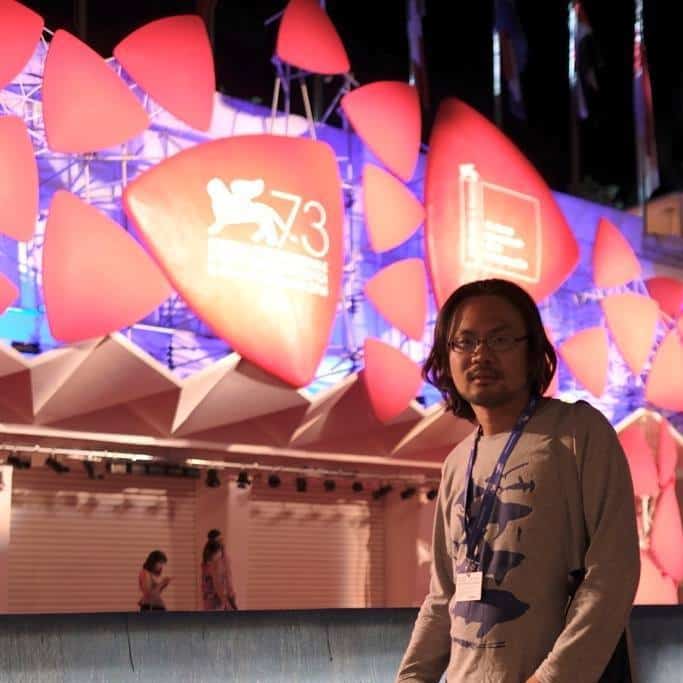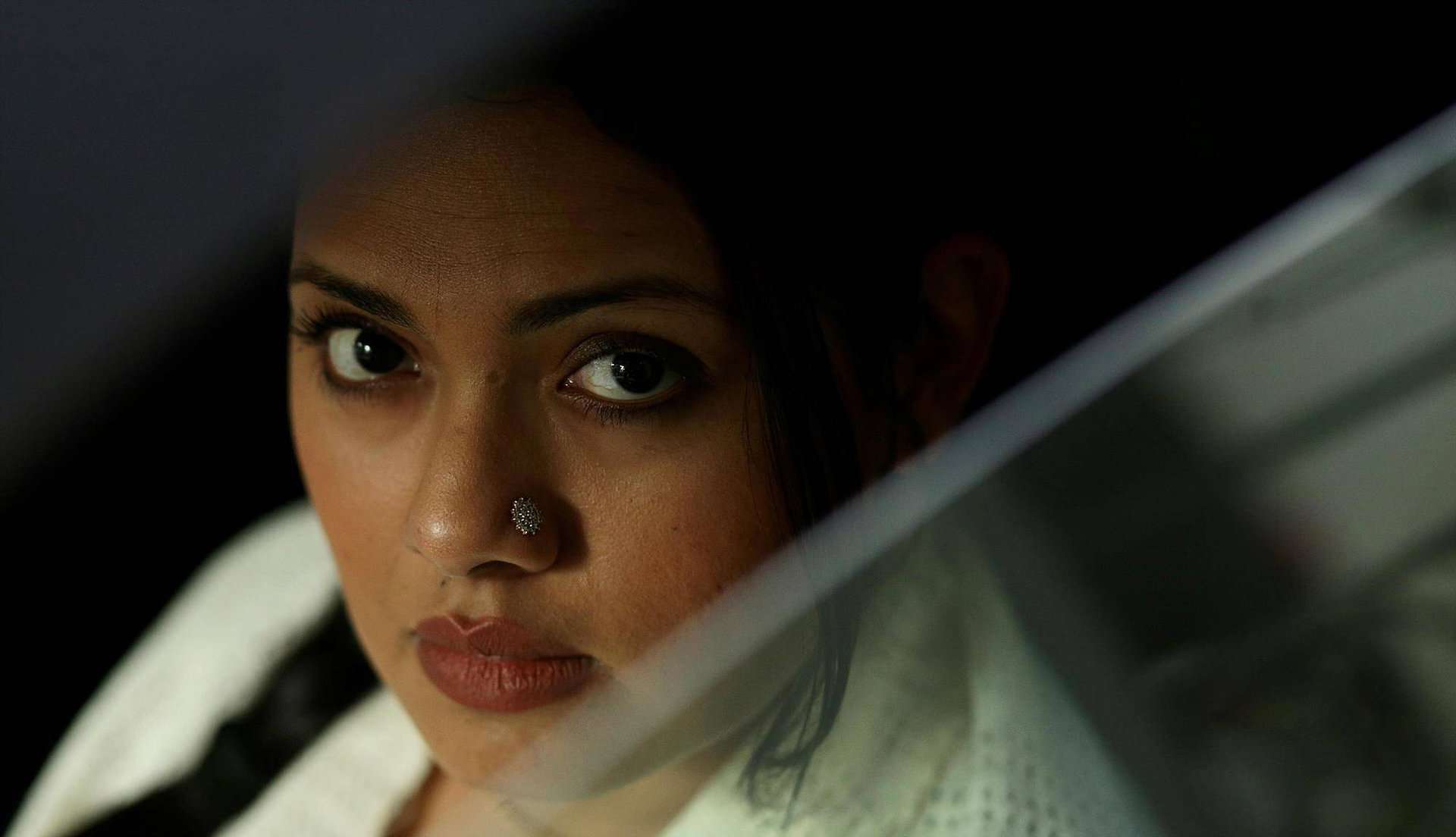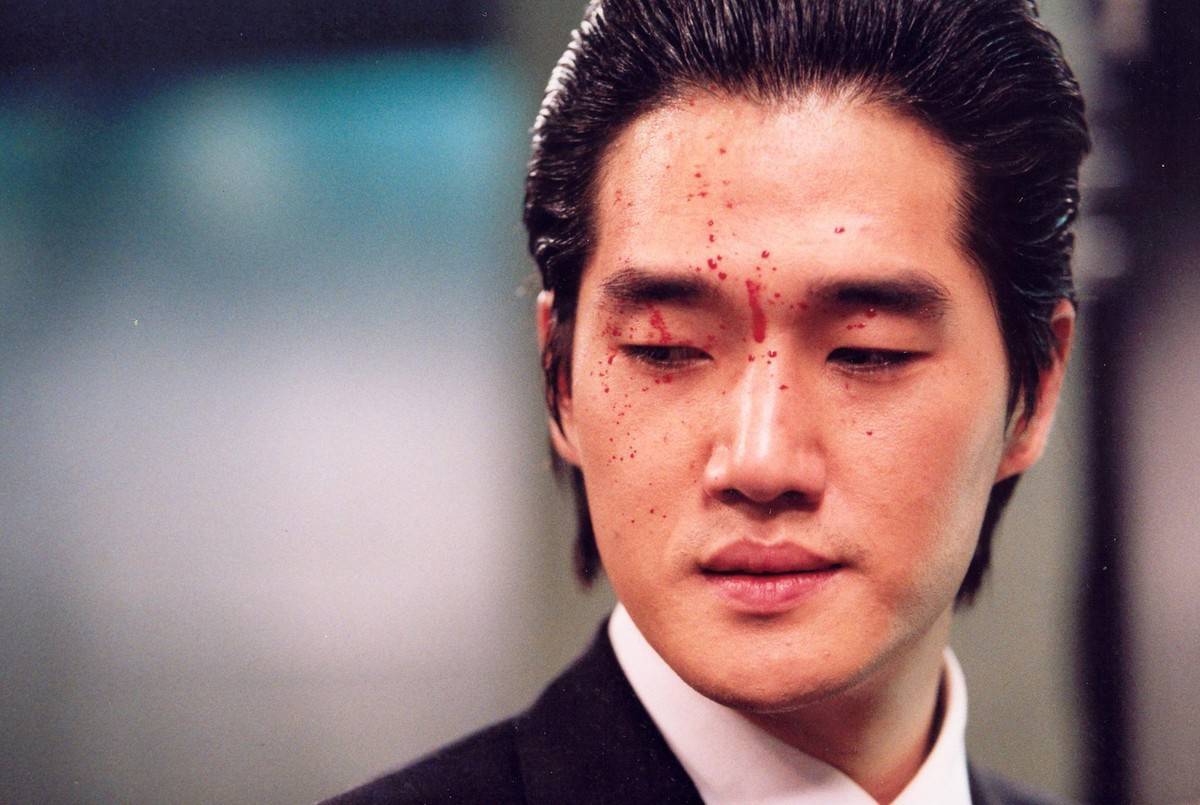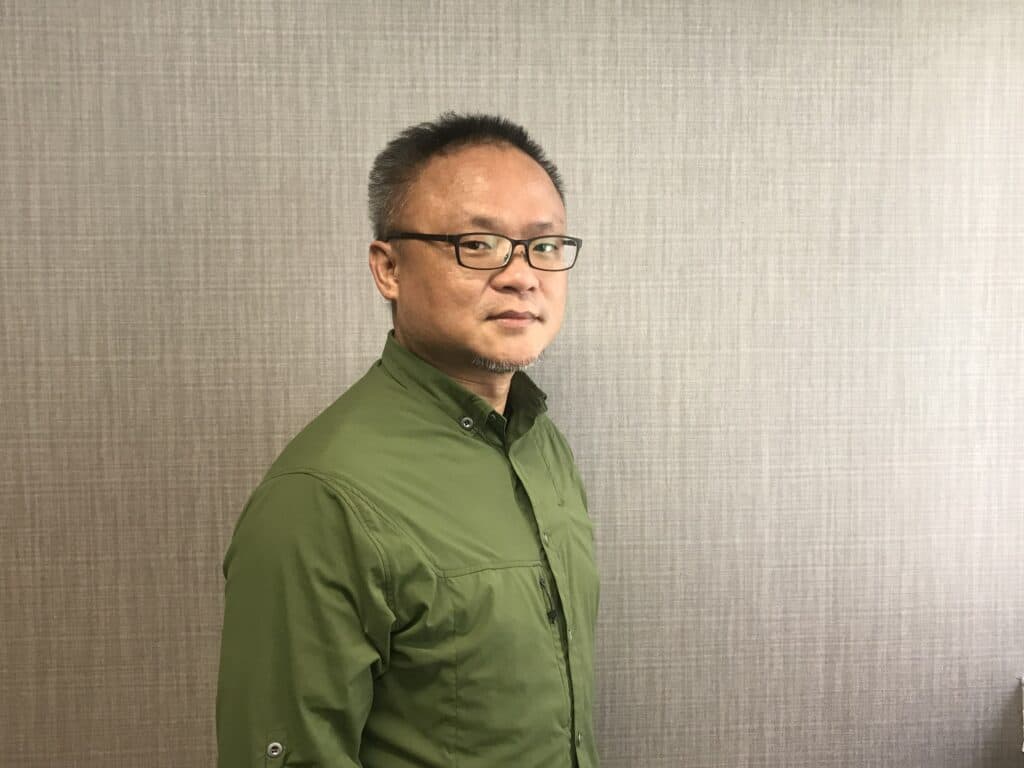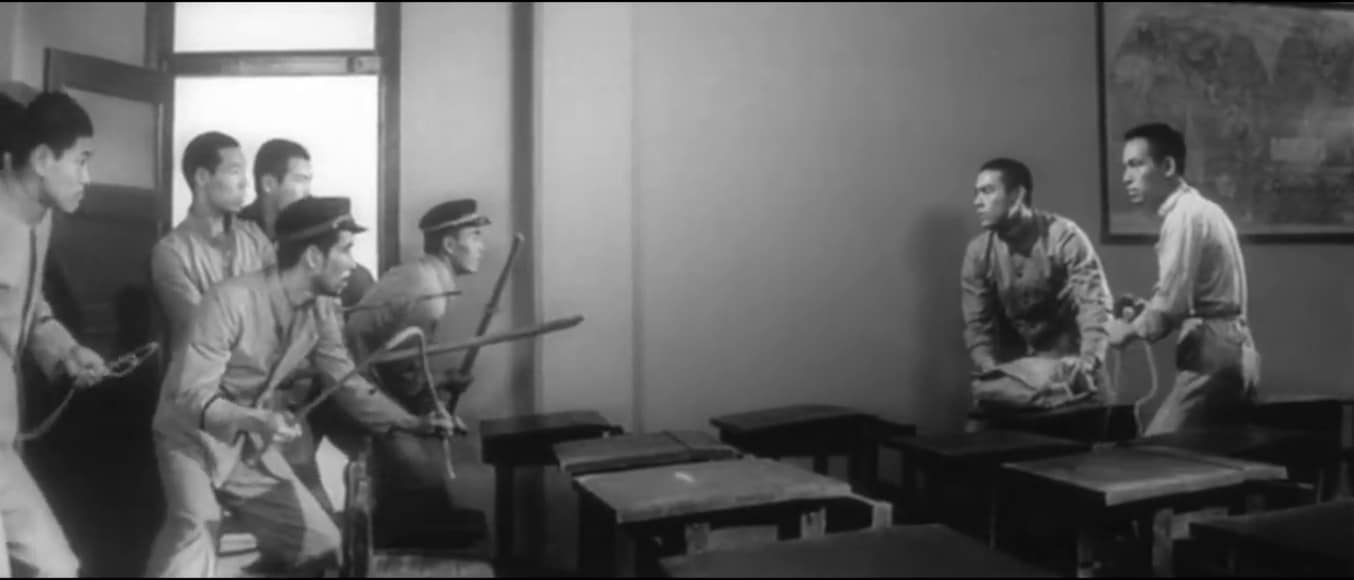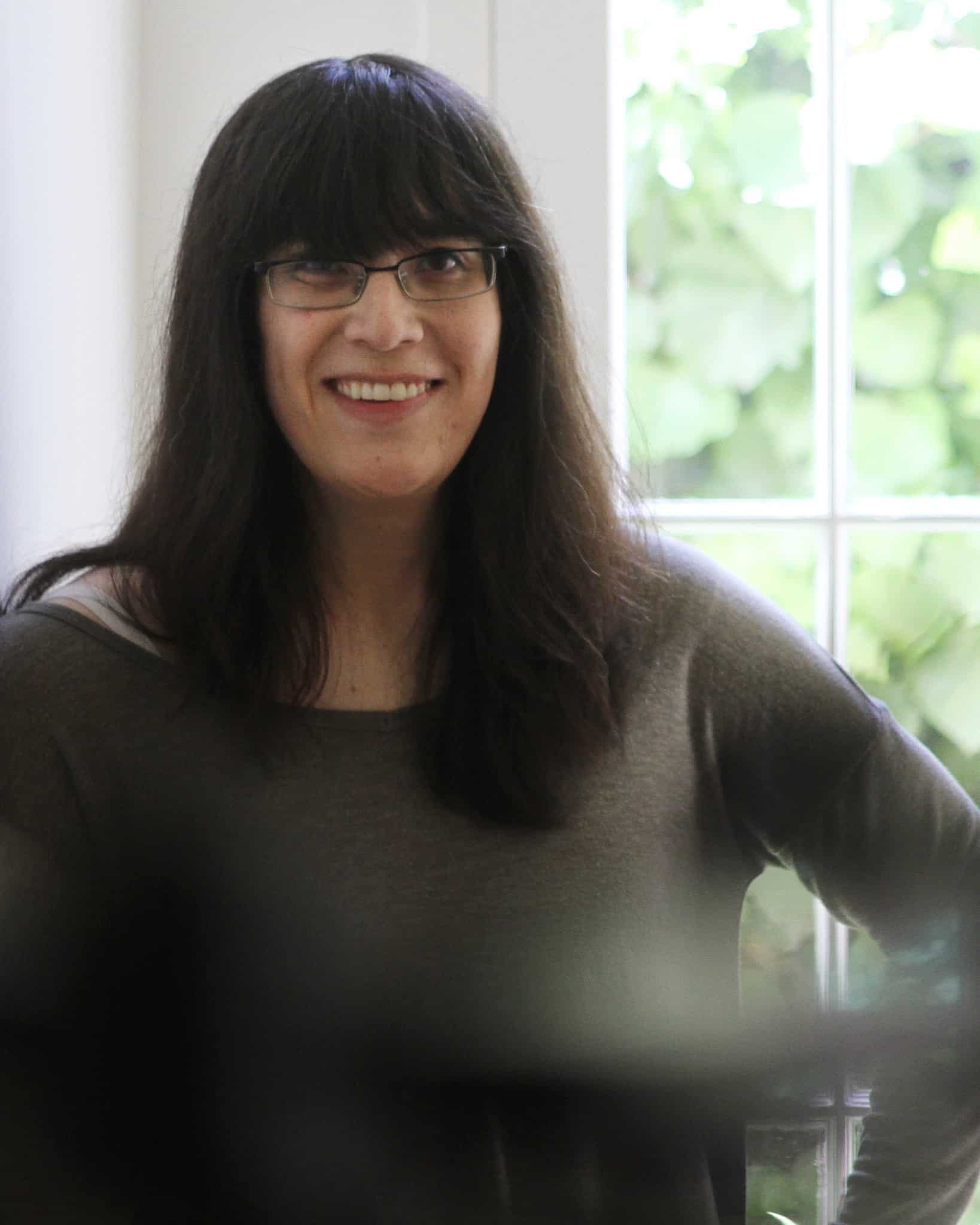Translation by Lukasz Mankowski
Takashi Komatsu won the PFF Award 2016 Grand Prix with the middle-length film “Out of the Frying Pan”, which was invited to the Vancouver International Film Festival. “Cat and Salt, or Sugar” is his first feature film.
On the occasion of “Cat and Salt, or Sugar” screening at the 42nd PIA Film Festival, we speak with him about the festival, his unusual characters, and particularly Ichiro, hikikomori, idols, NEET, Japan and its nationalist tendencies, and many other topics.
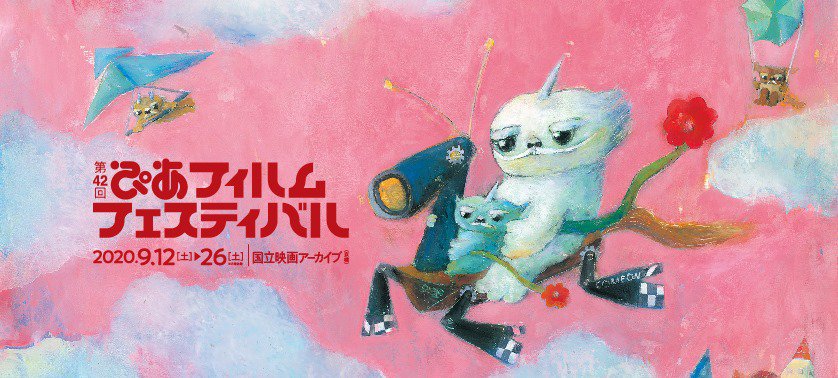
At the end of the interview, you can find some more information about PFF Scholarship
Can you give us some details about your cooperation with the PIA Film Festival in the production of “Cat and Salt, or Sugar”?
The most distinctive aspect of PFF's scholarships is the element of freedom. PFF offers their filmmakers freedom in terms of planning the script, as long as it is within the budget. They advise but they don't force anything. The system works very well to maintain the director's personality. There was even no discussion about the title. I could decide on my own.
In my case, the biggest struggle was the estimation of the budget, the time of the shooting, and the length of the film. It's pretty much common among filmmakers, so there was no other choice but to come up with some decent planning beforehand.
The characters in your film seems rather interesting. What was your inspiration in creating them? Do you identify with any of them?
One of the things defining my style is the approach that I do not hesitate to include my own experiences into the film, my sense of values or my personal tastes. I'm trying to be proactive about implementing ‘me' in the film.
The character that I projected myself onto is Ichiro. In a way, he hates common sense. He also hates Japan, a country that is the most nationalistic all over the globe, due to being too bound by common sense. He hates the rule of one's responsibility to Japan so that the individual supposedly has to work for the nation's sake. Ichiro is pretty much the same as me, he has the same sense of values and similar tastes or hobbies.
Keiko and Shigeru are quite typical people in Japan, but Kaneshiro is a rather exaggerated projection of the character. I intentionally made him an extreme one by removing his sense of reality, as well as leaving it up to the audience to realize that the fiction they see is the emphasis of the ‘total fiction'. In offbeat comedies like that, I think the viewers shouldn't be forced to feel empathy towards the characters. Instead, it is vital to put them in the perspective of observers. That's why I want to maintain a sense of objectivity similar to that of puppet shows and I included that especially in the dynamics between Kaneshiro and his daughter.
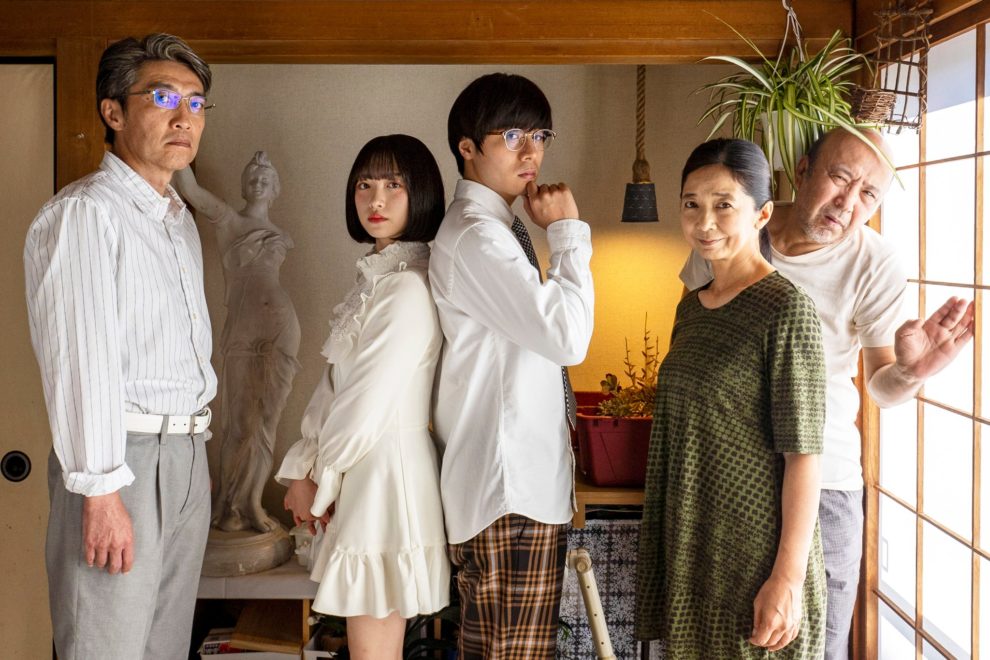
Does any of the situations presented in the movie come from your personal experiences? How close to the reality of young people in Japan are both the characters and the situations presented in the film?
The state the Sato family is at the beginning is modelled on my relationship with my family. It changes, though, once they meet Kaneshiro and his daughter. As for the Japanese youth, it seems that there are more and more people tending to think like Ichiro. The number has been rising over the past 20 years. They don't perceive the rules of ‘working at the big company' or ‘make money whatever the cost‘ as the right ones. In their mind, it's not the only path nor the way of living.
And yet, I think that a conservative and nationalistic country like Japan seems to still sweep away many young people through a still very harsh understanding of the notion of common sense, as well as a rigid environment. No matter what side you are, what is mutual (especially psychologically), is that due to the harshness of the environment, one is simply forced, and afforded to, to think about one's own business and nothing else. There's no margin for freedom.
I found the character of Ichiro one of the most interesting in the film. Can you tell us a bit more about him? How would you describe him to someone who had not met him before?
Ichiro is a person who managed to graduate from an elite Japanese university and even got hired by a top-notch company because he followed a certain rule that describes the organizational premise of Japanese society. This is to say, a vector that points people towards the commonly understood happiness that can be achieved through contributing to society.
But at some point, he starts to doubt that premise and experiences a sudden transformation. He takes up a voluntary job for the sake of his biological mother's cat, one that denies the common sense everything revolves around. The job is related to NEET (young people without access to education, employment or any kind of training) and is about domestic help. With this, he's able to maintain his and his mother's life stress-free. I find this way of living as an example of a certain pride.
That being said, he keeps on going without thinking about potential falling in love with someone. ‘What if I fall in love' doesn't exist in his head. But, once he meets Emi, with whom he falls in love, all the logical side of his self-affirmation starts to collapse. He is left with a blank page in his mind.
What is your opinion on hikikomori? What is the role of parents in the decision of these people to stay in?
I think each hikikomori is different. Those who suffer from mental illness have no choice but to detach themselves. This requires governmental and medical support. I think there is a lot that can't be solved solely by the parents.
The other thing is, just as in Ichiro's case, a withdrawal that is based on proactive unemployment. Many cases revolve around, for example, their IT ability thanks to which they are certain they will be able to survive in the world even in the situation of their parents passing away. That is something that makes them believe they will succeed in the future, even without the support of their parents. They believe they will be fine.
What's more, there are also cases in which people tend to focus on the abundance which the here-and-now offers to them (this is their vector of happiness), rather than investing into an uncertain or unreliable future (the attitude representing the ‘common sense' vector that leads to happiness). I believe there are more and more parents who show understanding towards that attitude.
What is your opinion about idols?
In Japan, there are two types of idols. One refers to major idols, the second one to underground, indie idols. Up until now, the former used to represent huge companies, they would be influenced by political strings, and represented commercialism in its most conservative and common way. The latter ones, since they are underground, they exist in a world that abounds in diversity or independence, one that thrives on innovation. Inside it, there is Ichiro (and me), who is under the effect of this peculiar charm.
In the film, we can see this type represented by the appearance of ‘NILKLY', a rock idol, whose punk attitude overflows with a feeling of dystopia (quite atypical for the idols in general). It represents the sense of values that refers to Japanese society as ‘a world that exists only within the realm of dystopia'. That sense of values is something that wins Ichiro's heart (and mine). There are many indie idols like ‘NILKLY', the diversification is vast, and their artistic quality is considered very highly.
Regarding the cinematography, frequently in the film, you use some unusual angles that present the action from above. Why? Also, how was your cooperation with the DP and what was your overall purpose in the visual aspect?
All the shots in the film were steady because, with my DP, we intentionally didn't want to point the audience's gaze towards any particular direction. Because the audience can actively participate in a certain observation on their own, only for that reason we can establish the off-beat tone of the comedy. What's more, it is from the fact that I'm leaving my audience up to them, to the act of observation, that they can pick up any kind of theme, whatever they are willing to. I give them agency to participate in my film. That's why I decided to establish such a visual style.
There were no sneak-peeping photos. That's why we didn't do many shots like peeking into Emi's skirt or a gaze that would show something from below. Since it's not surveillance either, we didn't shoot everything from the corner of the ceiling either. Through a fixed shot from above, I wanted to have the audience's attention so that they would focus on the observation. That was my sole remark regarding directing the type of shooting.

The art direction and particularly the various rooms in the house are rather intriguing. Can you give us some more details on that aspect?
I paid a lot of attention to interior design because it represents the surrounding of the individual from the perspective of time; it enables storytelling about both the past and the present. I was quite fixated on this aspect in the film, so I spent some time discussing it with my designer.
In a sense, the texture of human beings somewhat resembles one of the puppets or dolls; in a way, it is a play placed into a stage [through the design], so it's not just a real house being used as a location, but we treated it as a genuine shooting plan.
We didn't just favour people. The house, its interiors, the design, and the people inside it, I wanted all of it to be treated equally so that everything would be on the same level.
How was the casting process for the film like?
What is your opinion about the Japanese film industry at the moment?
For the past 20 years or so, I think that the Japanese film industry has been dead. It has disappeared. It's not like there was someone responsible for it, some grey eminence behind it who has done something wrong, it's just it sadly happened as the natural flow. of things On a burnt field like that, there are a few people like me who still thrives on doing films built on a premise of an individualistic sense of values. If at some point, we somehow manage to bring Japanese film back to life, that would be the most fortunate.
Are you working on any new projects?
Right now, I'm feeling sick because of my anger towards the Japanese government. My mind and body have collapsed in a sense and I will be undergoing medical treatment for the next year. During that time, I intend to devote myself to growing succulent plants, the same as in the film, and I think I want to make my next film about succulents as the main motif. The image I have so far goes like this: succulents + Japanese Society + family + the conflict of rich and poor + off-beat comedy.

The PFF would also like to add the following statement about PFF Scholarship
What is the PFF Scholarship?
The PFF Scholarship was launched in 1984 to nurture new film talent discovered at the Pia Film Festival for the future of Japanese film.
This program is not a grant but a total production program by PFF, from the development of original projects to their release. So far, 26 films have been made in this program.
First, a competition for an original project is held from among the prize-winners of the PFF Award competition.
Next, the appointed producer and the director whose project has been selected will spend a lot of time working one-on-one to develop the project.
It is neither an art film that genuinely pursues what the director wants to create, nor a commercial film that focuses on the elements that will make it a hit, but a project that aims to create a film that maximizes the director's individuality despite a limited budget.
The backgrounds of the directors who take on the challenge of the PFF scholarship are diverse: some have studied filmmaking at art colleges or film schools, some have made independent films in cine clubs at universities, and some are entirely self-taught, and the film that won a prize at the PFF was their first film.
They have different visions of what kind of filmmaker they want to be. And they have different experiences and goals.
To help these directors to move on to the next step, PFF creates a tailored production system for each director and their project.
PFF then introduces the completed film to overseas film festivals and works for theatrical release. In this way, PFF comprehensively accompanies the films from the development until diffusion.



